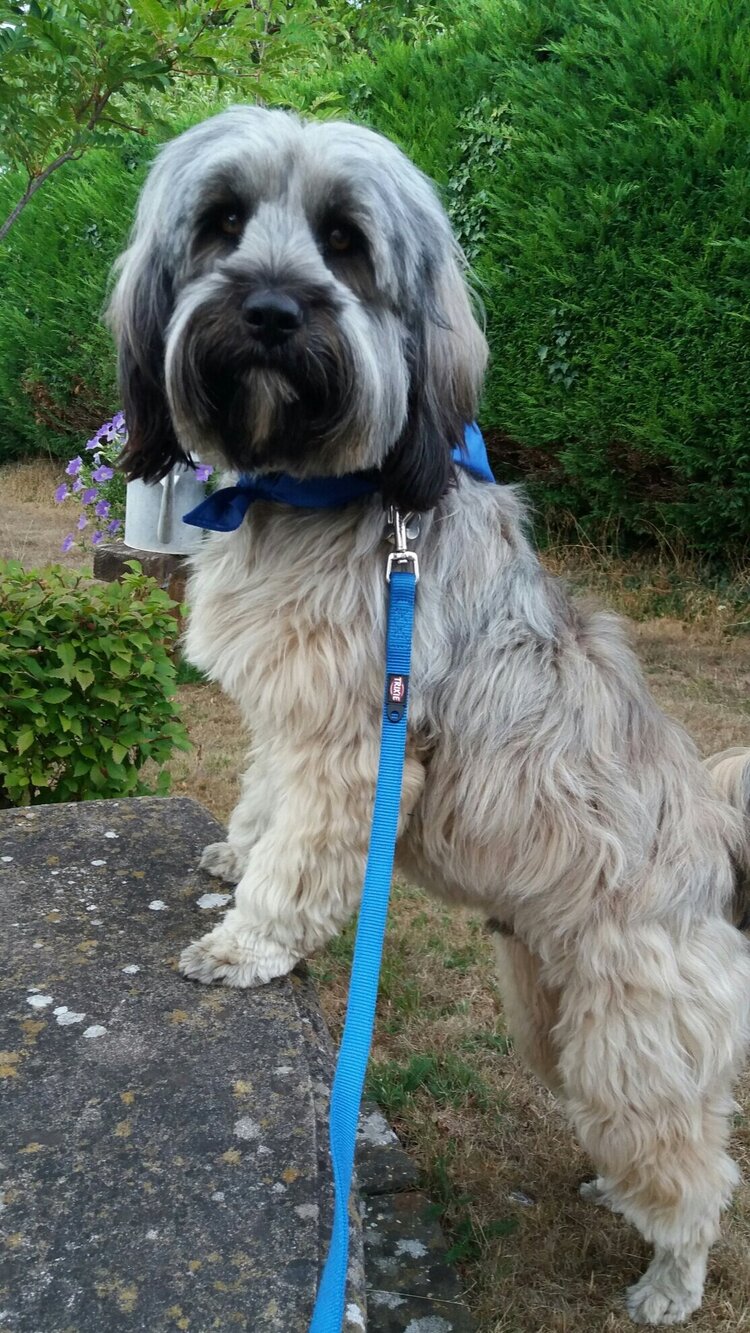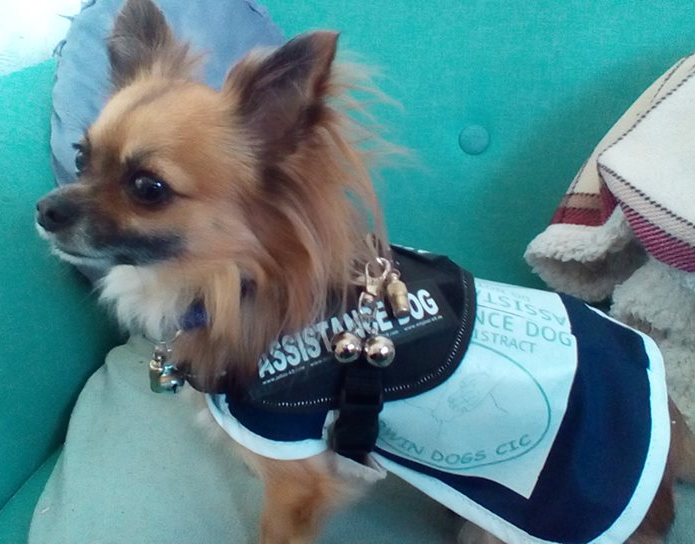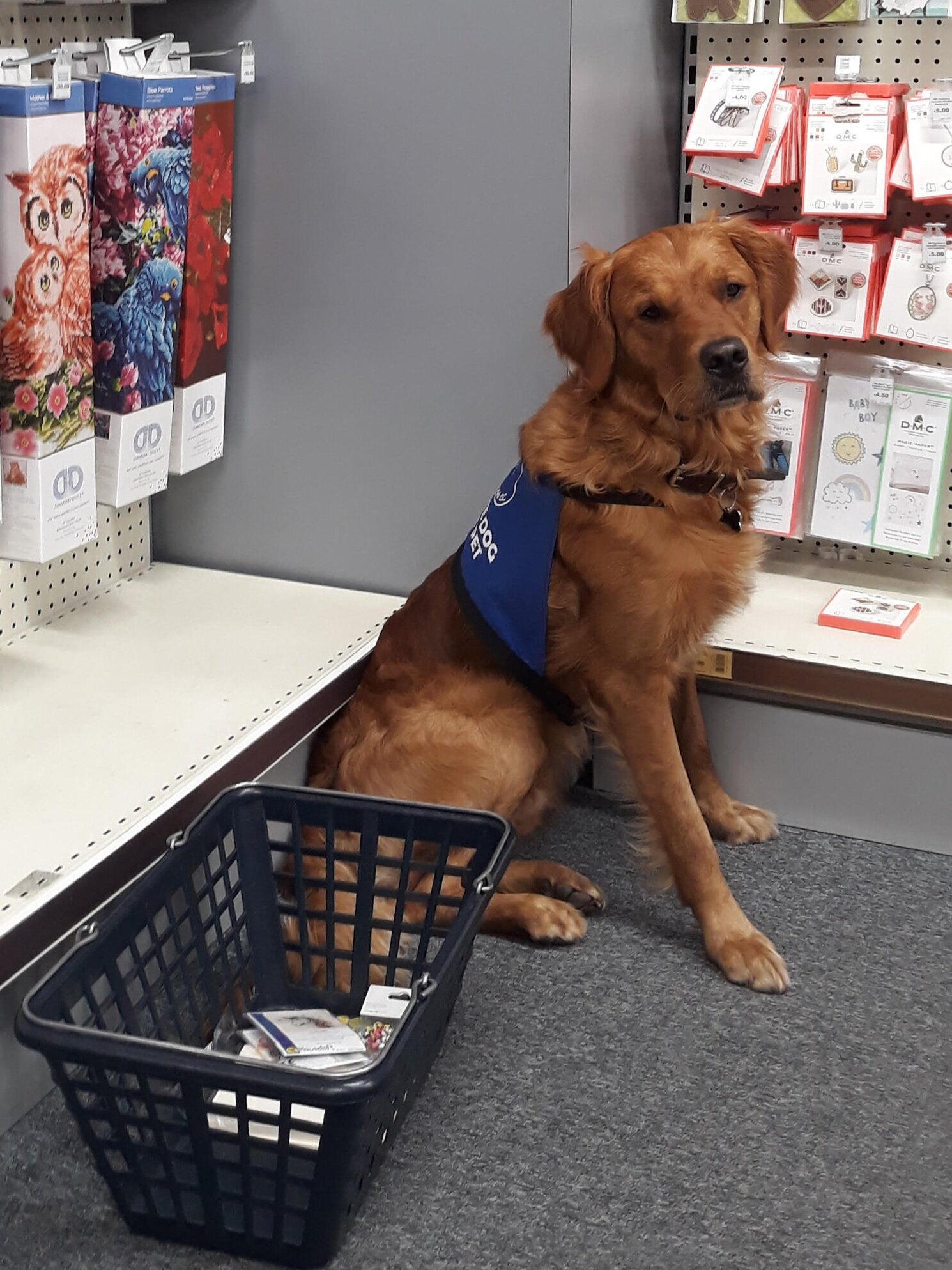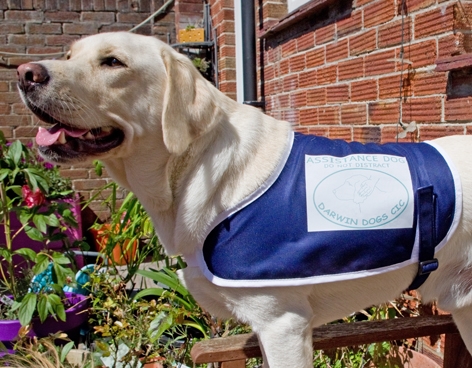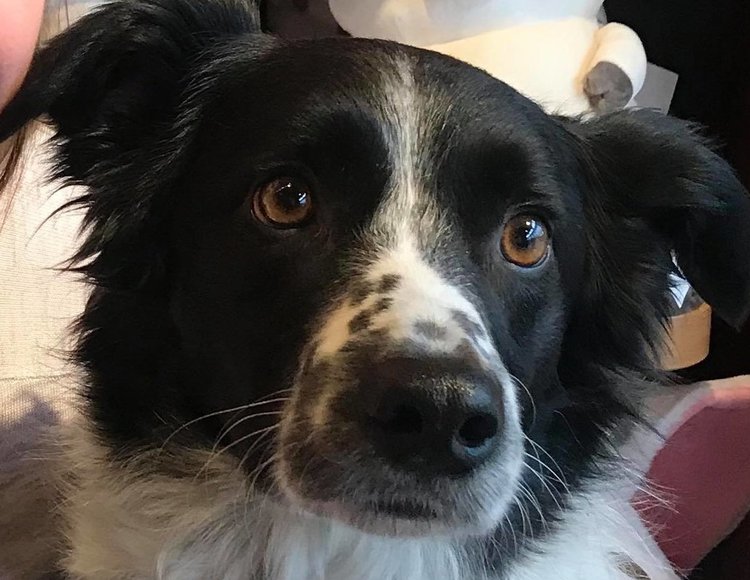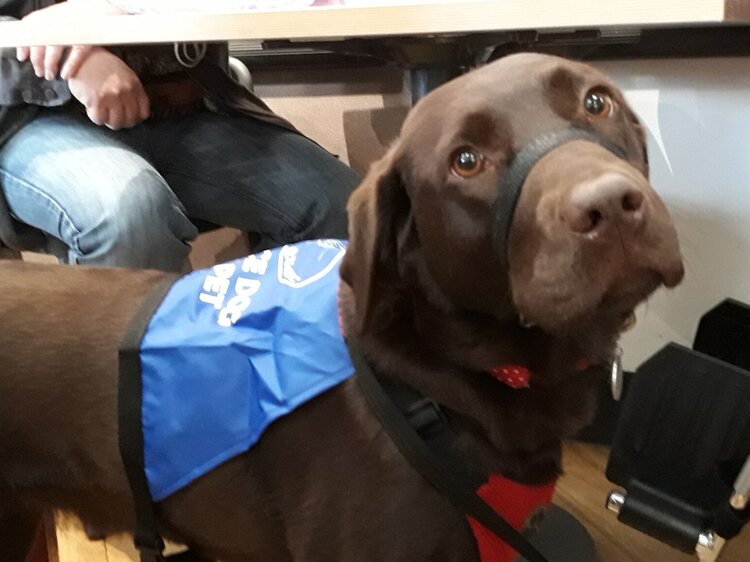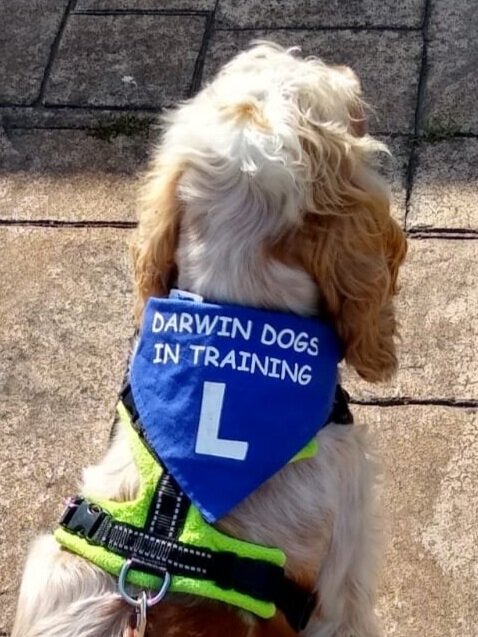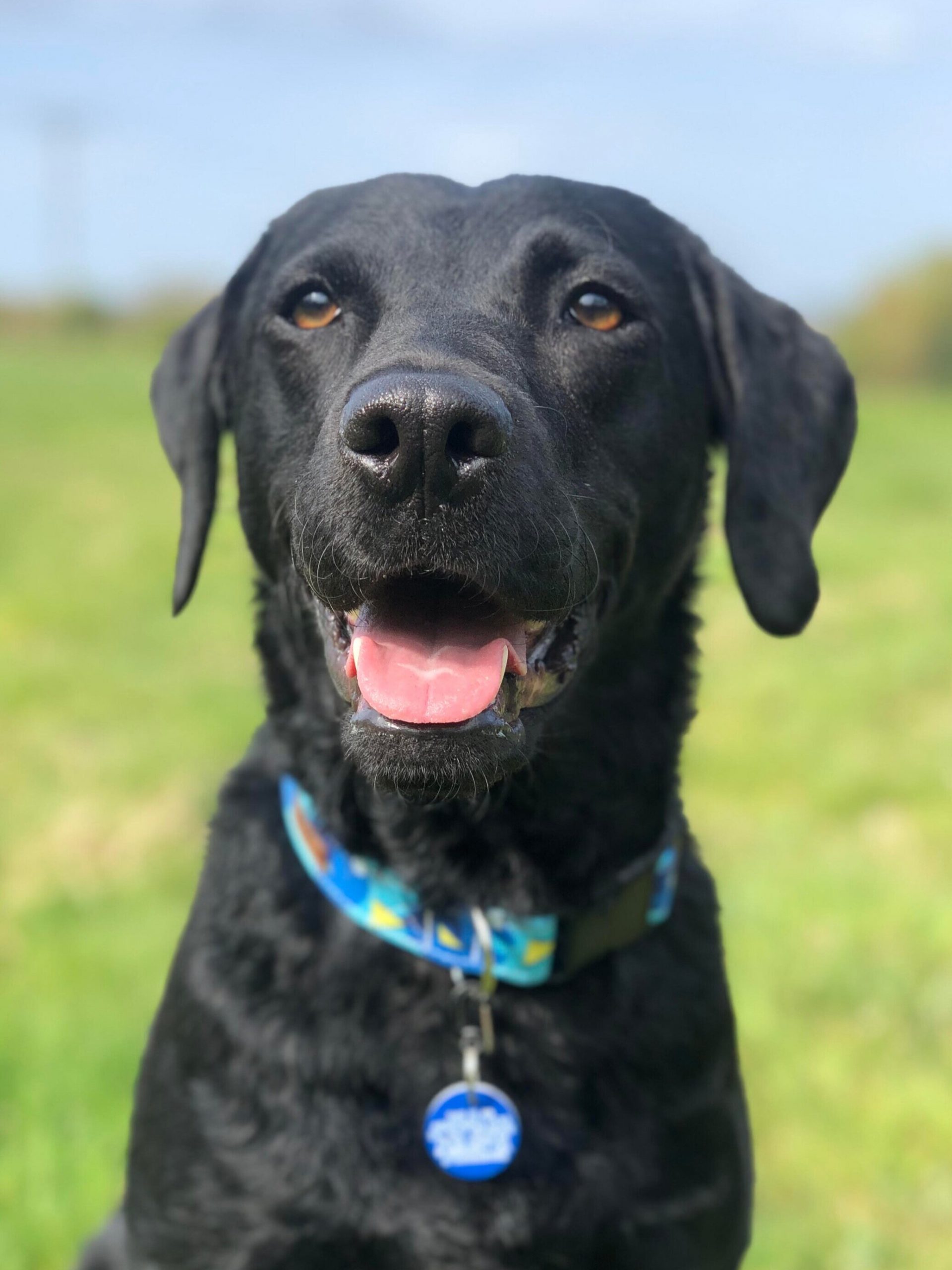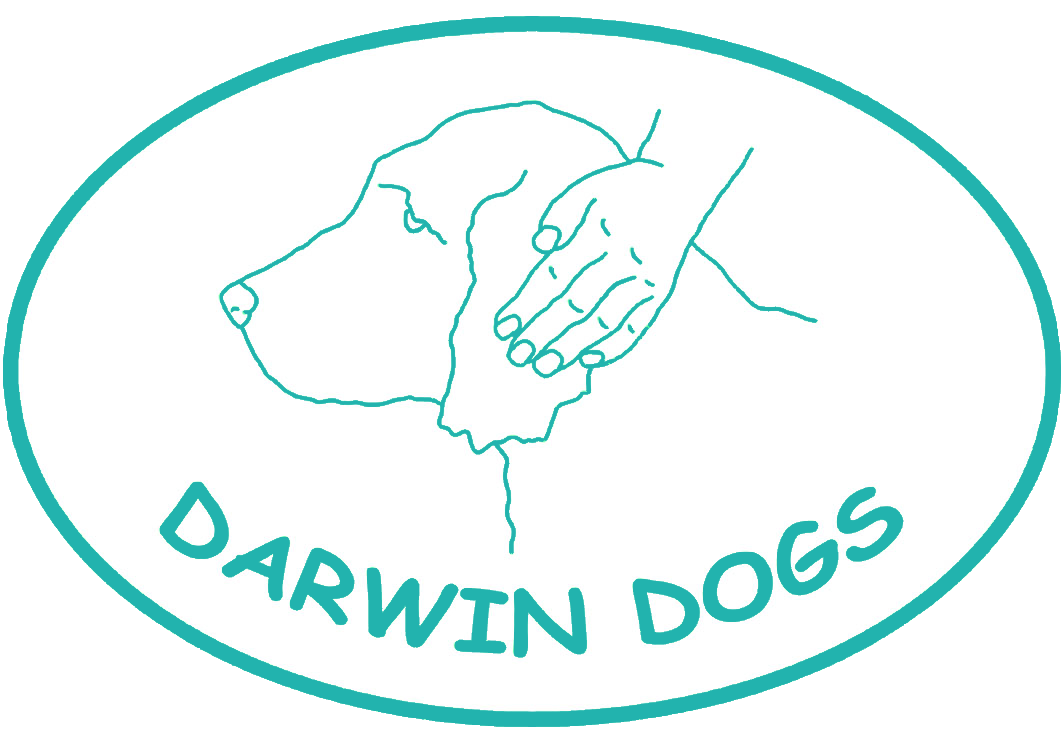TRAINING A NEW MEMBER OF THE CARE TEAM
We provide dog training to adults disabled by mental health conditions, or on the autistic spectrum, who have their own dog, under the age of 3, and can demonstrate a need for specific training, tailored to their individual needs, conducted in their home or other location considered to be safe. Each client’s dog is trained specifically for them.
We train the dogs to be well behaved in public, confident in all situations and to perform a multitude of special tasks, to lessen the clients disability. We will consider applications regardless of race, sex or religion, providing the applicant meets our other requirements.
ABOUT US
Darwin Dogs is a registered charity, originally formed as a CIC in March 2014 after a successful 3 year pilot project, that we called Dogs for Mental Health.
We have helped many people and their dogs form a better partnership and improve their life and the number of qualified Assistance Dogs is growing all the time. We are currently working with many more clients, all with different levels of need and requirements from their dog.
Bearing in mind that the Mental Health Foundation tell us that 1 in 6 British adults are experiencing a mental health problem at any given time we can see the potential for many more partnerships.
Darwin Dogs is a registered charity, originally formed as a CIC in March 2014 after a successful 3 year pilot project, that we called Dogs for Mental Health.
We have helped many people and their dogs form a better partnership and improve their life and the number of qualified Assistance Dogs is growing all the time. We are currently working with many more clients, all with different levels of need and requirements from their dog.
Bearing in mind that the Mental Health Foundation tell us that 1 in 6 British adults are experiencing a mental health problem at any given time we can see the potential for many more partnerships.

DARWIN’S STORY
One night at our usual training class a lady, who had been training with us for a few weeks, stayed after the class and asked if I could help her train her dog to be an Assistance Dog. She explained she had a mental illness that caused her physical and mental problems and she was convinced her dog would be able to help her.
Cautiously I agreed and started researching her illness, which was probably one of the most complex and poorly understood mental health conditions she could have had. Basically it caused her balance problems, dreadful nightmares from which she awoke screaming, she wasn’t allowed out on her own because she would forget where she was and how to get home, anxieties and depression. Not surprisingly, she had very low confidence levels and tended to stay at home most of the time, not wanting to be a burden on her family and friends.
Watch an interview with Darwin’s owner here.
Together we started training her dog, Darwin, and slowly I could see changes happening.
She started going out more, because she felt more confident with him. She used him to lean on if she felt wobbly, he picked things up if she dropped something, rather than previously bending down for it herself and invariably falling over. If she did fall he would stand and allow her to use him to get back up again.
She says he opened her world up for her again.
It took us about 3 years to fully train Darwin but even from the start we could see what a huge difference he made to his owner’s life. We decided to try and train more “Darwins” for people with mental health problems. And so Darwin Dogs was born.
We believe Mental Health problems should be catered for just as Physical Health problems are.
WHAT WE DO
If an owner has a diagnosed disability, and they and their dog are capable of making the grade, we can qualify them as an Assistance Dog partnership. As an Assistance Dog the dog is allowed access to many more places than a pet dog. Assistance Dogs are covered by the legislation in the Equality Act 2010, where it states that a disabled person has the same rights to services as a non-disabled person. If you need your dog to access those services the provider is obliged to allow your dog access.
Training a dog to qualify as an Assistance Dog takes hard work and dedication from the owner and the trainer, and results in a highly trained, well socialised, well behaved dog who can remain calm, alert, and under control in any situation. The minimum standard a dog must reach to qualify is set by Assistance Dogs International (ADI) a coalition of Assistance Dog training organisations across the world. This is incorporated into our final assessment.
According to ADI the definition of an Assistance Dog is as follows:
A generic term for a guide, hearing or service dog specifically trained to do more than one task to mitigate an individual’s disabilities. The presence of a dog for protection, personal defence, or comfort does not qualify that dog as an assistance dog.
Read our Annual Report here and see our Financial Statement here.

